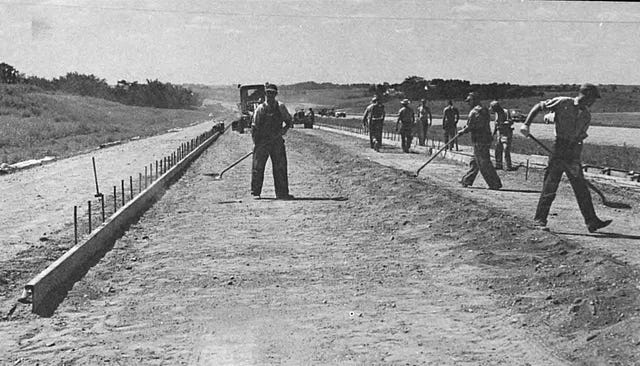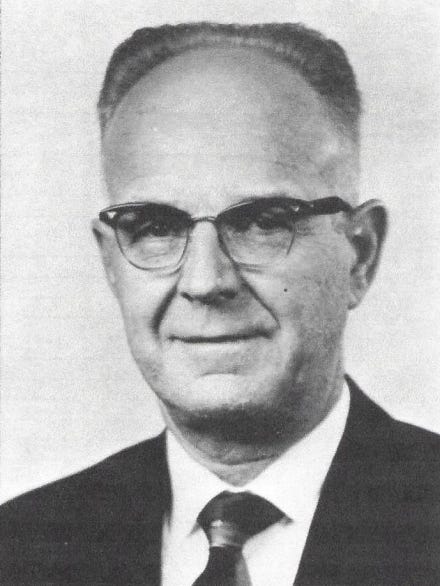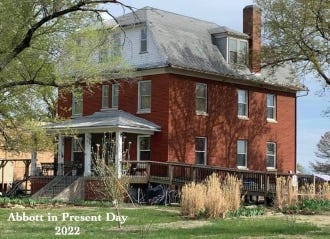We hear it often and we believe it. And yet we know, like all things in this world, it is an ideal with myriad mixed application and painful failings all about. It came to mind as my wife and I visited with a friend.
This new friend was a somewhat refugee, settled legally in an American state, staying in the home of friends. She has been there for two years. Her friend's HOA has strict rules about house guests. Two months maximum, no exceptions, no loopholes. The HOA president is popular, not least for her consistent application of the rules.
“No one is above the law.” There have been no exceptions, until now. The HOA president, if she even knows, doesn't care. And if anyone else cares, they don't say.
This means several things: personal freedom in one's housing decisions really matters, the spirit of the law matters more than the letter, and some things transcend the law, like mercy. I think our friend should be able to stay there as long as it is workable for all.
This is instructive, though HOA rules are tangential to our judicial system. Numberless factors always come to play in the courts, not all of them sinister. The worst violations are money and political power – unless of course it serves my ends – then I don't protest as much. As the ancient expression has it, “It all depends on whose ox is getting gored.”
I grieve over the litigious nature of our culture. Frivolous lawsuits, the mere threat of lawsuit, and “lawfare” plague our judicial system in ways that hinder it from ensuring justice for all. And yet there are factors at play we often overlook. Local matters, for example, are often decided with local concerns in mind, the strict idea of “no one is above the law” set aside. I saw this once in a rural community where a murderer received the leanest possible treatment due to the mitigating circumstances obvious to all who were there.
And yet one man's happy justice is another's broken scale, as we are seeing in spades today. The new President is doing things that, charitably considered, are merely reflections – perhaps correctives – of President Biden's misdeeds. One person's tit-for-tat is another's “at long last justice is done.” And we learn about it by means of variously construed media outlets which we trust or not, based on our own assumptions going in.
I think of two helpful reminders in this quagmire. One is to know various extra-legal factors affect the process of justice. How often have mere good looks swayed the opinion of all involved? Or what has a bad day for judge or attorney brought to bear? How often does sheer cleverness win the day when everyone looking on knows justice failed? Circumstances, particular venue, luck of the draw, some obscure point overlooked by court or prosecutor– they all come into play and we know pure justice was beyond reach once again.
The other thought comes to mind from the New Testament where Jesus speaks to how we handle ourselves in court. There is mystery to it, but Dallas Willard puts it helpfully. He says Jesus was after something like this: When you come to court be at peace with whatever the outcome will be and, moreso, be at peace with your opponent. Even be ready to greet him as you enter with a handshake and a greeting: “Well, I hope this works out for the best for all of us!”
Such an outlook might be ludicrous to an attorney but as Willard also says, we should take Jesus seriously enough to imagine he knew what he was talking about. Perhaps he was helping us know God is the final judge, life is short, it is likely we will not get total justice here, and we just as well be at peace with that. And maybe we love the other person – even our enemies – more than our own way.
I don't think this means for a minute that any person is above the law or that we must accept injustice as a matter of course. But it does mean, seems to me, that we remember we ourselves – the one looking back at us in the glass – are faulty. We judge poorly, and try as we might, we will get it wrong. We hope mercy will triumph over justice on our behalf. And in turn we learn to back off our insistence on what has become a legalism in new quarters: maligning and despising those who depart from whatever orthodoxy breathes the zeitgeist.
True enough, no one is above the law, except when they are. It is for us to do what we know is right, love our neighbor, even tell the HOA president to take a hike if we feel we must. And if she hauls us to court for it, well, maybe she is right. Let's try to work it out in the fear of God and pray the good prevails.
In time all will be made right, and I don't want to surrender to hate or fear along the way.






